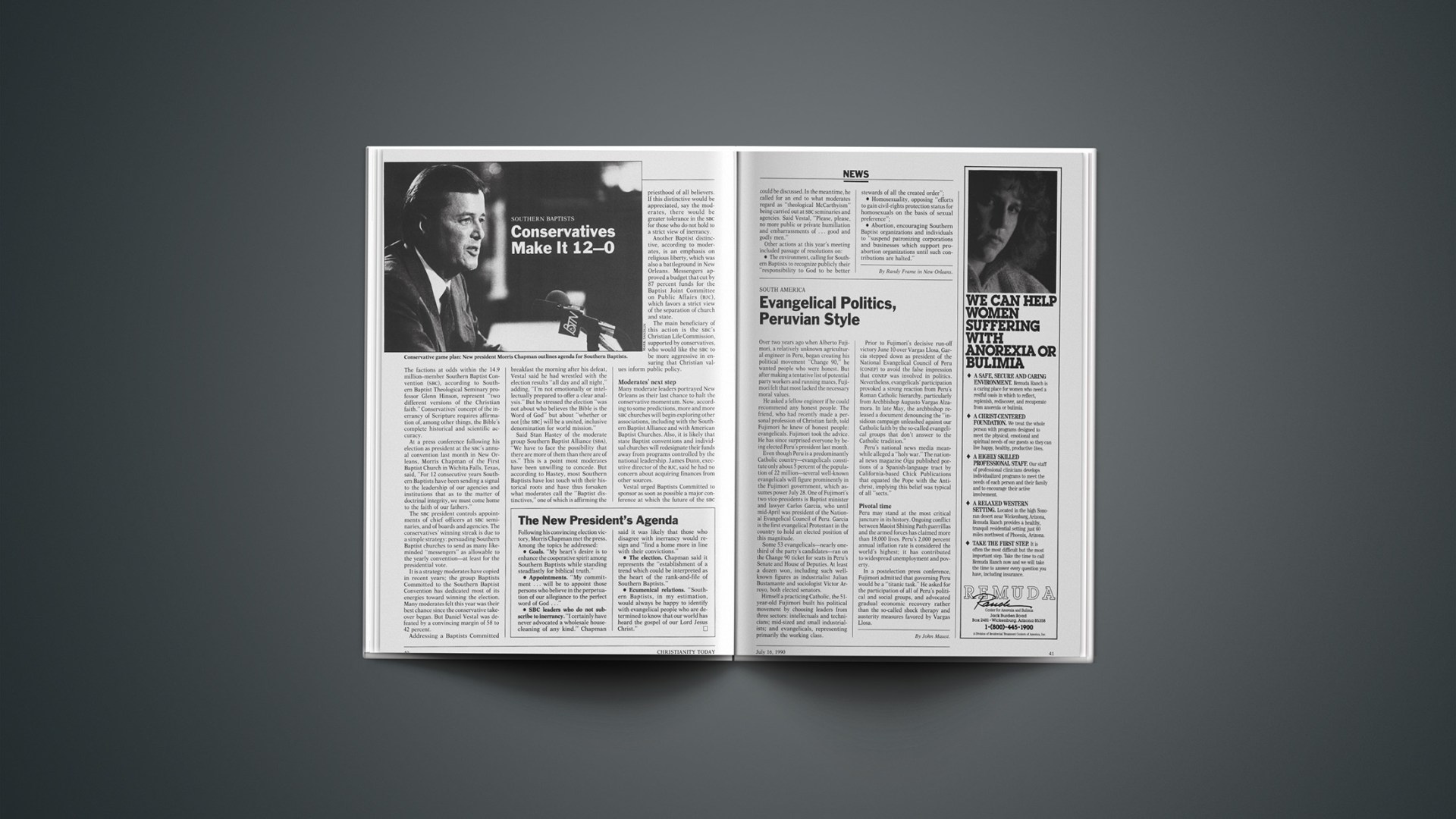Over two years ago when Alberto Fujimori, a relatively unknown agricultural engineer in Peru, began creating his political movement “Change 90,” he wanted people who were honest. But after making a tentative list of potential party workers and running mates, Fujimori felt that most lacked the necessary moral values.
He asked a fellow engineer if he could recommend any honest people. The friend, who had recently made a personal profession of Christian faith, told Fujimori he knew of honest people: evangelicals. Fujimori took the advice. He has since surprised everyone by being elected Peru’s president last month.
Even though Peru is a predominantly Catholic country—evangelicals constitute only about 5 percent of the population of 22 million—several well-known evangelicals will figure prominently in the Fujimori government, which assumes power July 28. One of Fujimori’s two vice-presidents is Baptist minister and lawyer Carlos Garcia, who until mid-April was president of the National Evangelical Council of Peru. Garcia is the first evangelical Protestant in the country to hold an elected position of this magnitude.
Some 53 evangelicals—nearly one-third of the party’s candidates—ran on the Change 90 ticket for seats in Peru’s Senate and House of Deputies. At least a dozen won, including such well-known figures as industrialist Julian Bustamante and sociologist Victor Arroyo, both elected senators.
Himself a practicing Catholic, the 51-year-old Fujimori built his political movement by choosing leaders from three sectors: intellectuals and technicians; mid-sized and small industrialists; and evangelicals, representing primarily the working class.
Prior to Fujimori’s decisive run-off victory June 10 over Vargas Llosa, Garcia stepped down as president of the National Evangelical Council of Peru (CONEP) to avoid the false impression that CONEP was involved in politics. Nevertheless, evangelicals’ participation provoked a strong reaction from Peru’s Roman Catholic hierarchy, particularly from Archbishop Augusto Vargas Alzamora. In late May, the archbishop released a document denouncing the “insidious campaign unleashed against our Catholic faith by the so-called evangelical groups that don’t answer to the Catholic tradition.”
Peru’s national news media meanwhile alleged a “holy war.” The national news magazine Oiga published portions of a Spanish-language tract by California-based Chick Publications that equated the Pope with the Antichrist, implying this belief was typical of all “sects.”
Pivotal Time
Peru may stand at the most critical juncture in its history. Ongoing conflict between Maoist Shining Path guerrillas and the armed forces has claimed more than 18,000 lives. Peru’s 2,000 percent annual inflation rate is considered the world’s highest; it has contributed to widespread unemployment and poverty.
In a postelection press conference, Fujimori admitted that governing Peru would be a “titanic task.” He asked for the participation of all of Peru’s political and social groups, and advocated gradual economic recovery rather than the so-called shock therapy and austerity measures favored by Vargas Llosa.
By John Maust.










